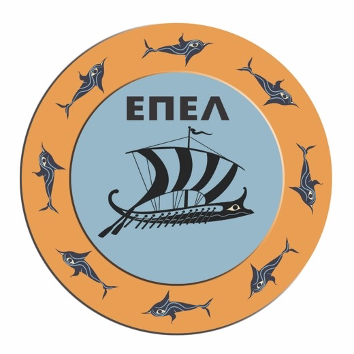ΕΠΕΛ/WoPoLis
Εργαστήριο Ελληνικής Ποίησης και Έντεχνου Λόγου (ΕΠΕΛ)

To νεοσύστατο Εργαστήριο Ελληνικής Ποίησης και Έντεχνου Λόγου (ΕΠΕΛ) εξυπηρετεί τις ερευνητικές και εκπαιδευτικές ανάγκες των πεδίων της ελληνικής φιλολογίας και λογοτεχνίας με την προαγωγή των οικείων γνωστικών αντικειμένων της αρχαίας ελληνικής ποίησης από τα ομηρικά έπη έως την ύστερη αρχαιότητα και του έντεχνου ελληνικού λόγου, την έρευνα της συνέχειας, επίδρασης, πρόσληψης αυτών στις επόμενες περιόδους της ελληνικής και παγκόσμιας γραμματείας. Ενδεικτικές επιστημονικές κατευθύνσεις: ελληνικός ποιητικός λόγος στη συγχρονία και διαχρονία του, ποιητική τέχνη- πράξη και θεωρία, πρόσληψη και σχέση ελληνικής ποίησης με άλλες λογοτεχνίες, αρχαίο δράμα ως παραστατική τέχνη, παραστασιμότητα του έντεχνου λόγου στη θεωρία και πράξη, ρητορική τέχνη και επικοινωνία, μουσική τέχνη και λόγος, ψηφιακές εφαρμογές, εθνομουσικολογία, αναβίωση της αρχαίας ελληνικής μουσικής, οπτική και ακουστική διάχυση του έντεχνου λόγου μέσα από τις άλλες εικαστικές τέχνες.
Η βασική καινοτομία του Εργαστηρίου είναι η προσέγγιση της ελληνικής ποίησης στο πλαίσιο της σύγχρονης ερευνητικής τάσης, που ορίζεται ως πρόσληψη των κλασικών μοντέλων και μειζόνων έργων σε άλλα ιστορικοκοινωνικά περιβάλλοντα με νέες στοχεύσεις και προθέσεις, ανάλογα με τις προσδοκίες του εκάστοτε κοινού-δέκτη. Το Εργαστήριο επιδιώκει να δημιουργήσει έναν καινοτόμο πυλώνα προώθησης των ελληνικών γραμμάτων που θα προβάλλει το γνωστικό αντικείμενο της ελληνικής φιλολογίας νοούμενης ως ολιστικής θεώρησης των ελληνικών γραμμάτων στο σύνολό τους μέσα από τη μελέτη του ελληνικού ποιητικού και έντεχνου λόγου και στη συγχρονία (μέσα στο ιστορικοκοινωνικό πλαίσιο όπου παράγονται) και στη διαχρονία τους. Με χρονική αφετηρία την ελληνική Αρχαιότητα το Εργαστήριο σκοπεύει να προωθήσει και να υλοποιήσει μια σειρά από διαχρονικές και διαθεματικές εκδηλώσεις των επιστημονικών και καλλιτεχνικών κατευθύνσεών του, που θα απευθύνονται τόσο στα μέλη της επιστημονικής και ερευνητικής κοινότητας του Πανεπιστημίου όσο και εκτός αυτού.
Η λειτουργία του ορίστηκε με το ΦΕΚ τεύχος Β 6908/08.12.2023.
Διευθυντής με τριετή θητεία εκλέχθηκε σύμφωνα με το άρθρο 8 του ΦΕΚ η καθηγήτρια πρώτης βαθμίδας αρχαίας ελληνικής φιλολογίας Φλώρα Π. Μανακίδου (διαπιστωτική πράξη Α.Π. ΔΠΘ/ΔΔΚ/49325/5360/3.6.2024).
The “Workshop of Greek Poetry and Literary Speech” (EPEL/WoPoLis)
The core principle of EPEL/WoPoLiS is the research and study of the literary works that form the foundation of Greek philology, which are a crucial aspect of Greek cultural identity and define its place within a broader historical and cultural context. The impact of classical studies on the modern era, particularly through the reception of ancient works by later literary traditions, represents one of the most dynamic research trends in the humanities, especially within classical studies. Therefore, the Workshop aims to highlight the convergence and potential collaboration of different branches of the humanities, unified by the common thread of classical poetry.
EPEL/WoPoLiS will explore and highlight the significance of continuity and the various forms of reception of Greek philology and literature across different eras and cultures. In doing so, it will support, through specific practices, the long-standing belief in the Western world: that ancient Greek literary production—through its continuations and expansions in late antiquity, the rise of Christian thought, its Byzantine and medieval adaptations, and the Renaissance origins of modern European thought—serves as the fertile foundation of modern Western culture, philosophy, and the arts.
EPEL/WoPoLiS will meet the research and educational needs of Greek philology and literature by promoting the study of ancient Greek poetry—from the Homeric epics to late antiquity—as well as Greek literary discourse. It will also examine the continuity, influence, and reception of these works in later periods of both Greek and global literature. Key areas of focus include: Greek poetic discourse in its synchronic and diachronic aspects, poetic art in theory and practice, the reception of Greek poetry and its relationship with other literatures, ancient drama as a performative art, the performativity of literary discourse in theory and practice, rhetoric and communication, the intersection of music and literature, digital applications, ethnomusicology, the revival of ancient Greek music, and the visual and auditory dissemination of literary discourse through other visual arts.
Beginning with Greek Antiquity as its foundation, EPEL/WoPoLiS aims to promote and organize a series of interdisciplinary events that span both scientific and artistic fields. These initiatives will engage not only the academic and research community of the University but also a broader audience beyond its walls.
Director
Flora P. Manakidou, Professor of Greek, Dep. of Greek, Democritus University